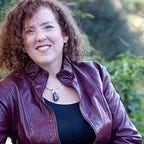The three main barriers to meaningful public engagement
From The Local Economy Revolution: What’s Changed and How You Can Help
Every week, I open The Local Economy Revolution to a random spot and give you a selection here from the book. Intrigued by what you read? Get the whole book at localeconomyrevolutionbook.com.
One of the biggest, often overlooked challenges we are facing today is that our traditional debate model of public involvement isn’t working, and it’s probably outlived its usefulness. There’s at least three reasons for that.
First, the traditional stand-up-and-make a speech approach evolved in an epoch when public participation was limited to a much more narrow portion of the total population than we know we need to involve today. Nineteenth — century politics (back to the ancient Greeks, actually) was limited to reasonably educated white men. So even when there were differences of opinion on local issues, everyone in the room was coming from, in very broad terms, the same perspective. Today, we have a lot more voices, a wider range of voices, and not everyone knows how to express themselves adequately within that oratory model. So we get silence from a large part of the population, and often less than ennobling wisdom from the small number who stand up to speak.
The second reason is that the issues we have to grapple with have become much, much more complicated because of the interdependencies and interrelationships that we live within in a modern community. You can’t deal with too much complexity, address too many nuances and acknowledge that there may not be a perfect solution when you are at a podium for three minutes and the situation has been cast as a for-or-against debate.
The third issue is that the ways in which we gain understanding and grapple with decisions are changing. K-12 educational methods (how teachers are being taught to teach) have largely discarded the lecture as a useful means of building knowledge.
Instead, teachers are increasingly shifting to methods that engage the students directly in dealing with the information, making sense out of it for themselves — which means that they develop better and more meaningful solutions to the problems they are presented. Frankly, that should have happened a long time ago. Cognitive psychiatrists have known for generations that only a very, very small part of the population learns best by listening to someone talk. And the more we become used to living in a world rich with information of all types, the more we need to be able to do more than parrot back what we hear.
What does educational methodology have to do with public participation? Everything.
What we desperately need is for our citizens to do much more than spout ill-informed NIMBYisms or buy into knee-jerk, simplistic cause-effect assumptions. We need to
- Draw on the unique knowledge, perspective and expertise of everyone we can get,
- Get them reasonably up-to-speed on the issues, and
- Engage them — get their hands deeply into — the search for solutions… solutions that are realistic and address the complexities and ambiguities of real community life.
Major companies put massive amounts of effort into broadening their employee base to include the widest range of people possible and then creating team environments to work on solving complex challenges. If they’re finding it necessary to use diverse team problem-solving to deal with stuff like getting shampoo into a bottle, how much more do we desperately need real, deep involvement to deal with the massive complexities that make up a community?
___
It’s not simply a matter of throwing a bunch of people in a room with a problem and hoping that they’ll figure something out. That’d be foolish.
Instead, we who work with communities have to borrow a page from good teachers and good business team managers: we have to
- Carefully create a structure that moves people through the information they need efficiently,
- Channel their efforts into the right direction,
- Make it safe for everyone to participate (including your sweet grandmother who never speaks in public), and
- Lead them to the creation of something that has value to the community and makes the time and effort they spent worthwhile.
The tools to do this are out there. We just have to learn them and use them.
